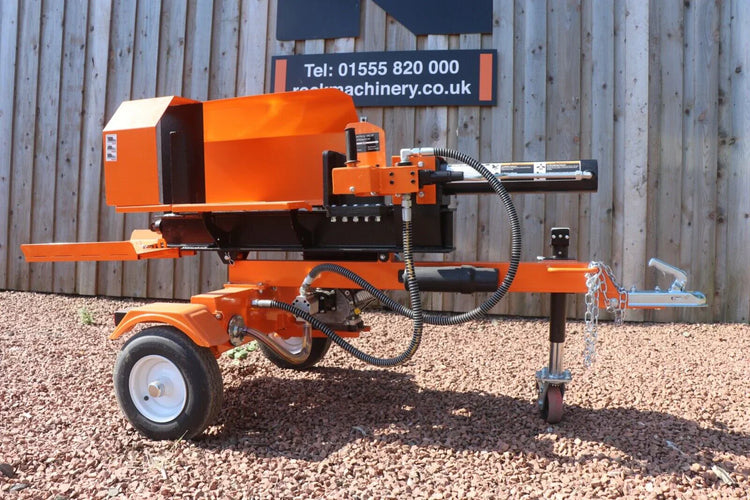When it comes to splitting logs, finding a machine that can operate with both high accuracy and efficiency is essential. One such option that offers just that is a hydraulic log splitter.
These splitters often come with high force ratings, allowing them to split logs of greater thickness and length. But, how do they work? Keep reading as we discuss just that in this blog.
What is Hydraulic Power?
Hydraulic power refers to the circulation of pressurised fluid to a motor, where this pressurised force is then converted into mechanical energy. This process takes place in various pumps, cylinders and valves and works as follows:
- An electric motor or fuel-powered engine powers the hydraulic pumps.
- These pumps push the hydraulic fluid (stored in a reservoir) through various control valves into a hydraulic actuator - in this case, a motor.
- As the hydraulic fluid enters the motor, it will put pressure on a piston inside it, where it then converts the force into mechanical energy and creates motion.
How Does this Work in a Log Splitter?
So, now you know how hydraulic power works, how is this applied to log splitters?
Logs splitters use this process by using pressurised fluid to push a spring-loaded piston forward. Logs are placed in front of this piston, which features a wedge or a blade on the end that works with the force used to push the piston forward to split the log.
Once the log has been split, the motor is released and the piston retracts, with the hydraulic fluid then returning to its reservoir.
Advantages
Hydraulic log splitters are more powerful than electric splitters, making them the better choice for handling tough or knotty wood, such as hardwoods. This means they can also come in vertical or horizontal configurations, depending on which best suits your requirements.
They are also much more efficient, since they require less force to split wood, which makes them suitable for handling higher workloads. This is ideal for those who require log splitters for commercial use in order to split multiple logs of work throughout the day.
Quality Wood Splitters
If a hydraulic log splitter sounds like the ideal piece of equipment to suit your log-splitting needs, then we’ll have the splitter for you here at Rock Machinery.
We have an extensive range of powerful log splitters powered by hydraulics, as well as those powered by electrics and petrol. From 8ton to 35ton, whatever your requirements from your log splitter, we have the right one for you.
Get in touch with us today for expert advice on which log splitter will best suit your needs.

